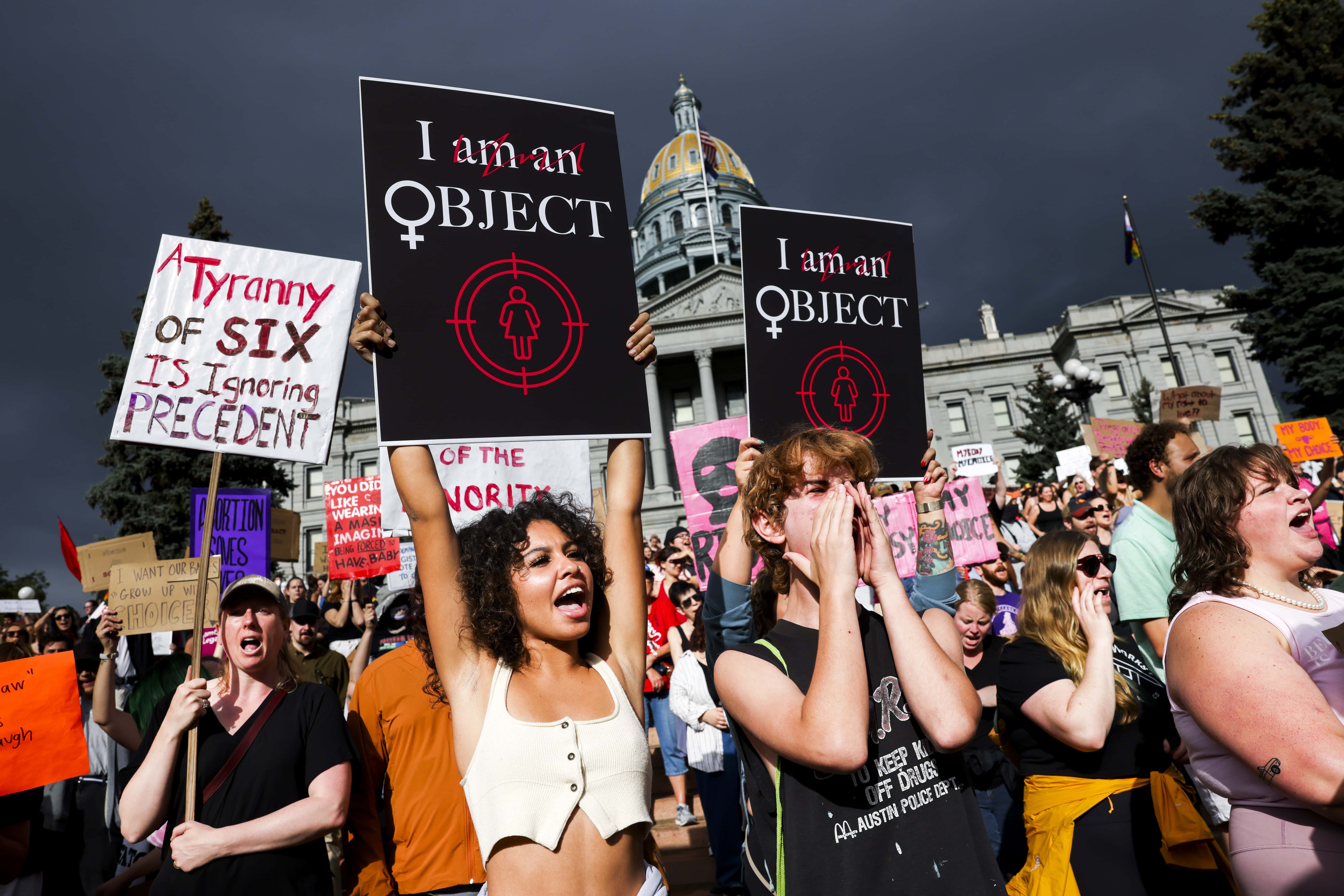Economic pain of Roe v Wade: Experts warn of debt, eviction and bankruptcy as possible outcomes

WASHINGTON: US Supreme Court's decision to overturn Roe v Wade, ending the federal constitutional right to abortion seems to be more politically driven, rather than an attempt to protect the rights and health of women from possible worst outcomes. The overturning of the landmark 1973 Roe v Wade ruling by the US Supreme Court comes at an economic cost to the nation, economists have warned. These worst outcomes can include financial hardship, restricted ability to attain higher education, poor health care, poor work conditions, economic depravity, and much more.
"This decision will cause immediate economic pain in 26 states where abortion bans are most likely and where people already face lower wages, less worker power, and limited access to health care," said Heidi Shierholz, president of the Economic Policy Institute, in a statement released Friday, June 24. "The fall of Roe will be an additional economic barricade." Taking away a women's right over her body will create a substantial impact on her personal and economic circumstances", said Jason Lindo, professor of economics at Texas A&M. "There is a huge [body of] literature showing long-run effects of the economic circumstances of the household in which a child grows up. On educational attainment, adult earnings, use of social assistance programs, involvement in crime, etc. The list goes on and on," she added.
RELATED ARTICLES
Here's why Donald Trump thinks Roe v Wade overturn is 'bad' for 2024 elections
What is Due Process Clause? Here's what other freedoms could go after abortion rights ruling
An analysis of the data by the National Bureau of Economic Research shows that the majority of women seeking to terminate a pregnancy near the gestational limits had incomes below the poverty line. Women who were denied an abortion, meanwhile, had higher rates of poverty, higher unemployment, and a greater need for government assistance. This, in turn, affects the economic well-being and prospects of their children, according to economists.

The Turnaway Study and its main findings
The Turnaway Study, which began in 2007, is one of the most famous to look at the financial and life effects of abortion access. Diana Greene Foster, a professor of obstetrics, gynecology, and reproductive sciences at the University of California, San Francisco, led the Turnaway Study. The study was large comprehensive research that tracked over 1,000 women who went to abortion clinics across the country. The study compared the women who received an abortion and those who were denied one. The research revealed that the women denied abortions were more likely to experience years-long economic hardship and had a higher chance of living in poverty compared to the other group. Their older children, as well, were more likely to live in poverty than the children of the women who received abortions.
As the Turnaway Study found, the economic hardship can last for years, says Sarah Miller, a professor at the University of Michigan's Ross School of Business, who worked with Foster on a subsequent study on the effects of abortion access.
Wider economy implications
Besides the impact of overturning Roe v Wade on individual women’s finances, abortion restrictions will also cost the US economy significantly by up to $105 billion annually, a 2021 report from the Institute for Women's Policy Research (IWPR) found. The IWPR estimates that Mississippi alone could face over $1 billion in economic losses due to abortion restrictions. "What does it mean in 2022, after decades of pushing toward women’s equality, that we regress as a country so far that we say a state is allowed to control such a significant personal decision," says Leila Abolfazli, director of federal reproductive rights at the National Women's Law Center (NWLC). "That has far-reaching implications that reverberate across the country."










